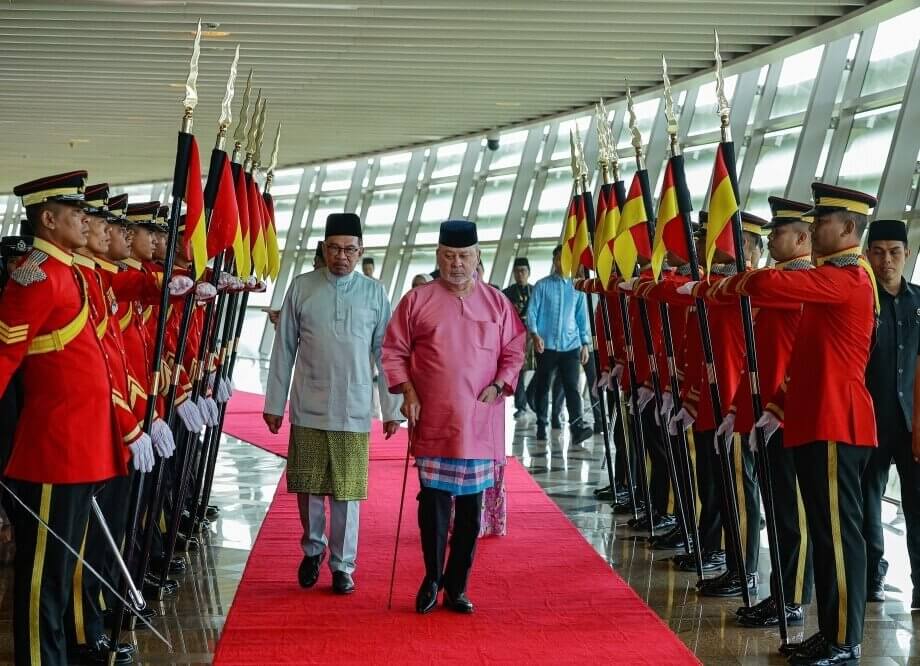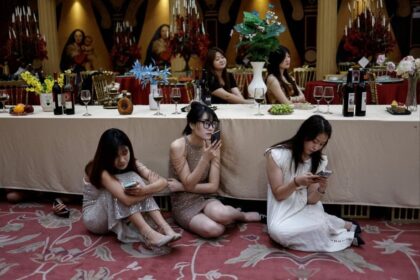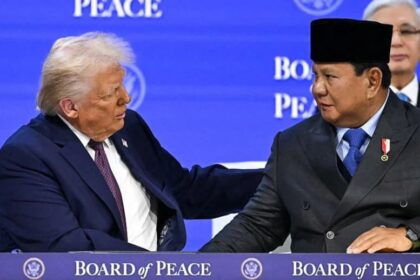Malaysia’s King Issues Stern Warning Against Politicising Islam
At the national Maal Hijrah celebration on June 27, 2025, His Majesty Sultan Ibrahim, King of Malaysia, delivered a powerful message to the nation’s political leaders and community figures. In his royal address, the King cautioned against the misuse of Islam for personal or political interests, urging all parties to uphold the sanctity of the religion and to foster unity among Malaysia’s diverse population. The event, held at the Malaysia International Trade and Exhibition Centre (MITEC), was attended by Prime Minister Datuk Seri Anwar Ibrahim, Deputy Prime Minister Datuk Seri Dr Ahmad Zahid Hamidi, and other high-ranking officials.
- Malaysia’s King Issues Stern Warning Against Politicising Islam
- What Did the King Say About Islam and Politics?
- Why Is This Warning Significant?
- Islam as a Foundation for Governance
- Calls for Ethical Leadership and Unity
- Broader Context: The 3R Issues and Recent Controversies
- “Islamise Politics, Don’t Politicise Islam”
- Implications for Malaysia’s Political Landscape
- Expert Perspectives and Public Reaction
- In Summary
The King’s remarks come at a time when Malaysia, a multi-ethnic and multi-religious country, continues to grapple with the challenges of maintaining harmony amid rising political and religious tensions. His address was not only a call for responsible leadership but also a reminder of the foundational values that underpin the nation’s governance and social fabric.
What Did the King Say About Islam and Politics?
Sultan Ibrahim’s speech was unequivocal in its message: Islam should never be used as a tool for political gain. Instead, he called for politics to be guided by Islamic values, emphasizing that governance must be rooted in the principles of Shariah (Islamic law) and not swayed by secular or liberal ideologies.
He stated, “I wish to remind community leaders not to politicise Islam for personal gain. Instead, let us practise politics rooted in Islamic values for the benefit of the nation.” The King further warned that exploiting religion for political interests, spreading slander, or inciting hatred could ultimately divide society and threaten national peace.
Sultan Ibrahim, King of Malaysia, declared: “No party should exploit religion for political interests or spread slander and hatred that ultimately divides society.”
He also stressed that platforms for dakwah (Islamic preaching) and religious education should never be used to promote partisan political agendas, but rather to strengthen unity and cohesion among the Muslim community, or ummah.
Why Is This Warning Significant?
The King’s warning is particularly significant in the context of Malaysia’s recent history, where issues of race, religion, and royalty—often referred to as the “3R” issues—have been exploited for political advantage. Such exploitation has, at times, led to heightened tensions and even violence, as seen in the recent controversy over socks bearing the word “Allah” sold at a convenience store chain, which triggered public outrage, calls for boycotts, and even a failed petrol bomb attack.
In response to these incidents, the government has reiterated its commitment to upholding unity and taking action against those who seek to incite hatred or exploit sensitive issues. The King’s address reinforces this stance, urging all Malaysians to act with maturity and to learn from such incidents rather than allowing anger and division to fester.
Islam as a Foundation for Governance
Throughout his address, Sultan Ibrahim emphasized that Islam is a complete and perfect religion, sufficient for all aspects of life. He called for the administration of the country to be guided by Islamic principles—justice, compassion, and integrity—rather than being influenced by ideologies that may undermine these values.
He drew inspiration from the Prophet Muhammad’s migration (Hijrah) from Mecca to Medina, which laid the foundation for the Constitution of Medina—a historic document that established principles of justice, consensus, and diversity. The King highlighted that Malaysia’s own Federal Constitution enshrines similar values, including justice, balanced power, shared responsibility, and the spirit of consensus.
Sultan Ibrahim explained: “The migration of Prophet Muhammad from Mecca to Madinah was a historic journey that laid the foundation for the Constitution of Madinah – a crucial document that established principles of justice, consensus, and diversity.”
By referencing these foundational texts, the King underscored the importance of upholding both religious and constitutional values in the governance of Malaysia.
Calls for Ethical Leadership and Unity
The King’s message extended beyond a warning against politicising Islam. He called upon all Muslims and leaders to understand the great responsibility of building a civilisation grounded in Islamic values. True development, he said, is not merely physical but must also encompass character, knowledge, and humanity.
He urged those in positions of authority to emulate the qualities of the Prophet Muhammad, who ruled with justice and never oppressed the weak. The King’s vision is for Malaysia to be a nation that not only succeeds in the eyes of the world but is also blessed and graced by God.
Sultan Ibrahim urged: “Let us work hand in hand to build a nation that not only succeeds in the eyes of the world, but is also blessed and graced by God.”
He also reminded all parties to respect the Federal Constitution and to avoid sparking hostility in the name of race or religion, which could jeopardise national peace. The King’s emphasis on unity is particularly relevant in Malaysia’s plural society, where maintaining harmony among different ethnic and religious groups is a constant challenge.
Broader Context: The 3R Issues and Recent Controversies
The King’s address must be understood against the backdrop of ongoing debates and controversies involving the intersection of religion, race, and politics in Malaysia. The so-called “3R” issues—Race, Religion, and Royalty—have long been sensitive topics, often invoked during political campaigns or in response to incidents that touch on religious or ethnic sentiments.
One recent example is the “Allah socks” controversy, where socks bearing the word “Allah” were found on sale at a convenience store chain. The incident sparked outrage among segments of the Muslim community, leading to calls for boycotts, police investigations, and even threats of violence. The government responded by taking action against those responsible and by urging the public to remain calm and united.
Political analysts have noted that such incidents are sometimes amplified by politicians seeking to gain support by appealing to religious or ethnic identities. This can lead to increased polarization and, in extreme cases, violence. The King’s warning is thus a timely reminder of the dangers of exploiting sensitive issues for political gain.
“Islamise Politics, Don’t Politicise Islam”
One of the key themes of the King’s address was the distinction between “politicising Islam” and “Islamising politics.” He called on leaders to ensure that politics is guided by Islamic values—such as justice, compassion, and integrity—rather than using religion as a tool for political expediency.
This message was echoed by Religious Affairs Minister Datuk Dr Mohd Na’im Mokhtar, who spoke at the same event. He emphasized that the theme of this year’s Maal Hijrah celebration, “Membangun Ummah Madani” (Building a Civilised Ummah), calls on Muslims to become agents of mercy, justice, and progress. The government’s Al-Falah Transformation Plan 2023–2027, guided by core values like knowledge, integrity, and sincerity, was cited as a strategic framework for sustainable Islamic governance in Malaysia.
Religious Affairs Minister Mohd Na’im Mokhtar explained: “This theme calls on us to revive the role of the ummah as an agent of mercy, justice and progress.”
The distinction between “Islamising politics” and “politicising Islam” is crucial. The former seeks to ensure that political decisions and governance are informed by ethical and religious values, while the latter risks reducing religion to a mere instrument for gaining power or influence.
Implications for Malaysia’s Political Landscape
The King’s address has significant implications for Malaysia’s political landscape. By calling for the separation of religion from partisan politics, he is urging leaders to focus on policies and governance that benefit all Malaysians, regardless of their religious or ethnic background.
This approach is particularly important in a country as diverse as Malaysia, where the potential for division along religious or ethnic lines is ever-present. By emphasizing unity, justice, and respect for the Constitution, the King is setting a standard for responsible leadership and national cohesion.
Political observers have noted that the King’s message aligns with the government’s broader efforts to address the misuse of sensitive issues and to promote harmony. Public awareness campaigns, enforcement actions, and inter-agency cooperation have all been part of the response to recent controversies.
Expert Perspectives and Public Reaction
Experts in Malaysian politics and society have generally welcomed the King’s intervention, viewing it as a necessary reminder of the dangers of exploiting religion for political purposes. Tunku Mohar Mokhtar, a political analyst from the International Islamic University of Malaysia, noted that the politicisation of religious issues can exacerbate racial prejudice and undermine social cohesion.
Political analyst Tunku Mohar Mokhtar observed: “The fact that the issue has reached this magnitude suggests that racial prejudice is strong.”
James Chin, a professor at the University of Tasmania, warned that once religious hatred is unleashed in politics, it can be difficult to control, citing examples from other countries where such dynamics have led to violence and instability.
Public reaction to the King’s address has been largely positive, with many Malaysians expressing support for his call to uphold unity and to resist the politicisation of religion. The government has reiterated its commitment to these principles, and enforcement agencies have taken steps to address incidents that threaten harmony.
In Summary
- Malaysia’s King Sultan Ibrahim has issued a strong warning against the misuse of Islam for personal or political gain, urging leaders to uphold the sanctity of the religion and foster national unity.
- The King emphasized that governance should be rooted in Islamic values and the principles of Shariah, not influenced by secular or liberal ideologies.
- He called for politics to be “Islamised” rather than Islam being politicised, advocating for ethical leadership and responsible governance.
- The address comes amid ongoing controversies involving the exploitation of religious and ethnic issues for political advantage, which have threatened social harmony.
- Experts and government officials have echoed the King’s message, highlighting the importance of unity, respect for the Constitution, and the dangers of politicising sensitive issues.
- The King’s intervention is seen as a timely and necessary reminder of the values that should guide Malaysia’s leaders and society as a whole.












